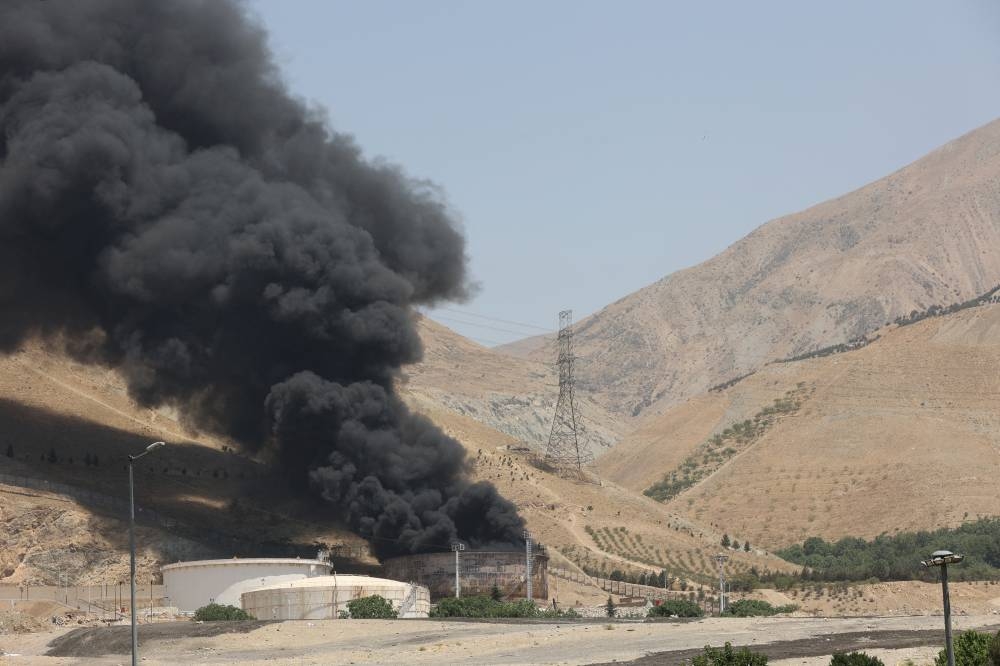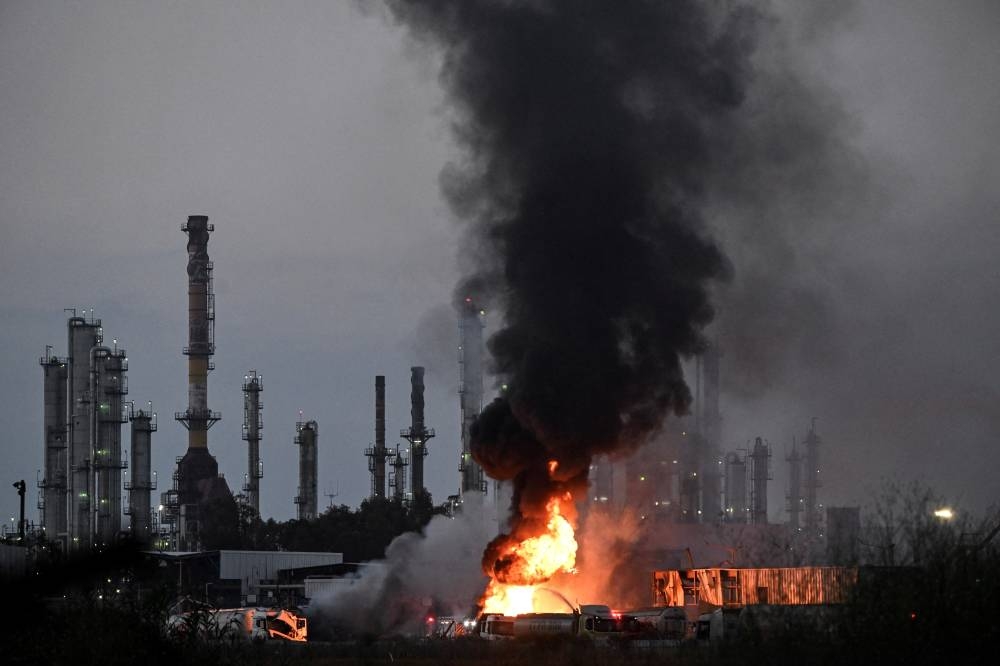- Iranian state broadcaster hit
- Nuclear watchdog indicates extensive damage at Natanz
- Iranian air defences thwart attack on South Pars gas field
- Iran planning big missile attack
Israeli forces have stepped up their bombardment of Iranian cities, while Iran proved capable of piercing Israeli air defences with one of its most successful volleys yet of retaliatory missile strikes.
"If President Trump is genuine about diplomacy and interested in stopping this war, next steps are consequential," Iran's Foreign Minister Abbas Araqchi said on X.
"Israel must halt its aggression, and absent a total cessation of military aggression against us, our responses will continue. It takes one phone call from Washington to muzzle someone like Netanyahu."
Sources told Reuters that Tehran had asked Qatar, Saudi Arabia and Oman to press US President Donald Trump to use his influence on Israeli Prime Minister Benjamin Netanyahu and push for an immediate ceasefire. In return, Iran would show flexibility in nuclear negotiations, said the two Iranian and three regional sources.
Netanyahu told troops at an air base that Israel was on its way to achieving its two main aims: wiping out Iran's nuclear programme and destroying its missiles.
"We are on the path to victory," he said. "We are telling the citizens of Tehran: ‘Evacuate’ - and we are taking action."
Late on Monday, Israel said it hit Iran's broadcasting authority, and footage showed a newsreader hurrying from her seat as a blast struck.
Iran's State News Agency also reported the strike.
Iran has issued evacuation warnings for Israeli news channels N12 and N14 after Israel attacked the building of Iran's state broadcaster. Iranian media said Iran was preparing for the "largest and most intense missile attack" yet against Israel, including against military and intelligence targets.
Israel says it now has control of Iranian airspace and intends to escalate the campaign in coming days.
Israel said it hit Iranian F-14 fighter planes at Tehran airport Monday, and its airstrikes have also put at least two of Iran's three operating uranium enrichment plants out of action.
Rafael Grossi, head of the International Atomic Energy Agency, told the BBC Monday it was very likely all the roughly 15,000 centrifuges operating at Iran's biggest uranium enrichment plant at Natanz were badly damaged or destroyed because of a power cut caused by an Israeli strike.
There had been very limited or no damage at the separate Fordow plant, he said.
Tehran's retaliation is the first time in decades of shadow war and proxy conflict that missiles fired from Iran have pierced Israeli defences in significant numbers and killed Israelis in their homes.
Iran says more than 224 Iranians have been killed, most of them civilians. Media published images of wounded children, women, and the elderly from cities across the country. State TV broadcast scenes of collapsed presidential buildings, burned-out cars, and shattered streets in Tehran. Many residents were trying to flee the capital, describing queues for petrol and bank machines that were out of cash.
Iranian air defences thwarted an attack Monday on the Iranian South Pars gas field, the world's biggest gas field, the Iranian Fararu news website reported. Iran shares the South Pars gas field with Qatar.
In Israel, 24 people have been killed so far in Iran's missile attacks, all of them civilians. Round-the-clock television images showed rescuers working in ruins of flattened homes.
"I'd say Iran is not winning this war, and they should talk, and they should talk immediately before it's too late," Trump said at a G7 meeting in Canada.
Before dawn on Monday, Iranian missiles struck Tel Aviv and Haifa, killing at least eight people and destroying homes.


